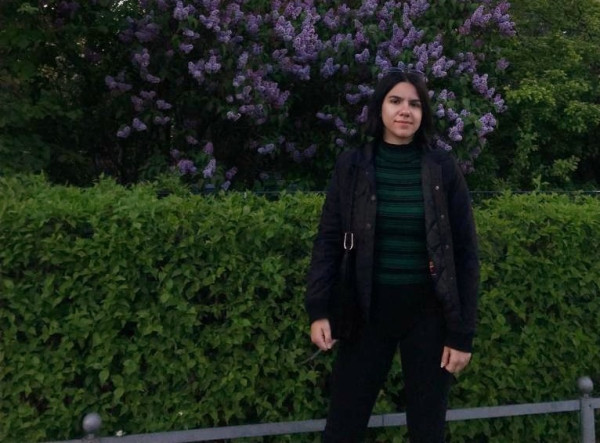Serena Bragadini
Interview by Nicola Nosengo, NCCR MARVEL on 26 June 2024
Have you always been interested in science?
Not initially. My parents are not scientists, and I did not choose a scientific path in high school: my high school was focused on foreign languages. I had always been attracted to scientific topics, but I had never met any teacher capable of creating a true passion for them. That changed at the fourth year of high school, when an excellent physics professor arrived at my school.

Serena Bragadini
How did you hear about the INSPIRE Potentials Program?
I heard about it from Marco Gibertini, who was a professor of mine at the University in Modena and who was before a Postdoc at EPFL with Nicola Marzari. I reached out to him to discuss a thesis project and he suggested to apply for this opportunity.
What is the topic of your master’s project?
The goal of the project is the study of vanadium dioxide, which has been extensively studied because of its peculiar properties. It is paramagnetic, and at a certain temperature it undergoes a phase transition and goes from metal to insulator while changing its crystal structure. There are many factors at play, including dimerization and a change in electronic structure. Studies have tried to understand the chicken-and-egg problem of understanding what is really driving the transition.
We use a new method called Algorithmic inversion method on sum over poles + dynamical Hubbard that was developed in the lab to treat highly correlated materials. It uses the formalism of Green’s function and is based on quantum many-body theory, and I want to see if it allows to reproduce the results obtained by experiments or by other methods. It is the first time the method is applied to a paramagnetic material, and we do not really know what kind of results we’ll get.
Do you think women face specific challenges in the sciences?
There is a great numerical unbalance, even greater than in other parts of physics. In Modena there are 3 physics curricula, and the ones in applied and experimental physics attract more women than the computational one. I can’t say I’ve suffered from gender bias specifically in my work, apart from the occasional suggestion that professors are less strict with girls.
Any advice for young girls interested in science?
Do not worry if you don’t have a scientific background from high school, and if you haven’t done enough physics or math. If you have passion and drive, you will catch up. And in University, make sure you spend enough time learning the theoretical foundations of physics. There are courses that focus a lot on recent advancements and applications, but in my experience mastering the fundamental theories is essential.
What are your plans for the future?
I want to do a PhD, hopefully as a follow up to this project. I think that would be a great learning opportunity also on the personal level, regardless of the career prospects in academia. After that I am not sure if I want to stay in academia or try something else. I will think about it in three or four years from now.
